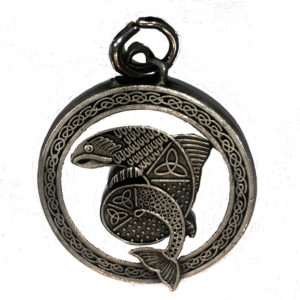Whoever is not strong must be clever.
Note: The Scots have a similar proverb, “Wiles help weak folk.” Celtic folklore is rich with stories of the clever overcoming the strong. Consider two other proverbs. Ní bhíonn tréan buan. (Strength is not enduring.) Ní thagann ciall roimh aois. (Sense does not come before age.) Given these cultural beliefs, it is not surprising that most of these tales involve clever old seers. The tradition spans centuries from the ancient mythic personification of wisdom, the sear Find in the Fionn mac Cumhaill sagas, to the later tales of Merlin the Magician.
If you hear this proverb, you might want to respond with a popular play on words, “Agus an tae nach bhfuil ládir ní foláir dó a bheith te.” (And the tea that is not strong must be hot.) In the original proverb, “an té” means “whoever,” while in the rejoinder, the homophone, “an tae” means “the tea.”
Note also: This proverb uses a common Irish idiom “ní foláir dó” which means “he must.” If you look up the word “foláir” in your foclóir, you are likely to find it coupled with the negative particle “ní.” It would probably translate “ní folair” as meaning “it is necessary.” So “ní folair dó é” means “it is necessary for him” or more tersely, “he needs it.” The phrase “a bheith glic” means “to be clever.” Put these two together, “ní foláir dó a bheith glic,” and you literally get “it is necessary for him to be clever” or “he needs to be clever,” or “he must be clever.”
However, some may be troubled by this negative particle. To understand the negative particle, you need to know that ‘folair’ is a synonym for the noun “foráil” which means “superabundance, excess; too much.” Therefore, “ní foláir dó é” then literally means “it is not too much for him.” This is an indirect way of saying that he really needs it.
